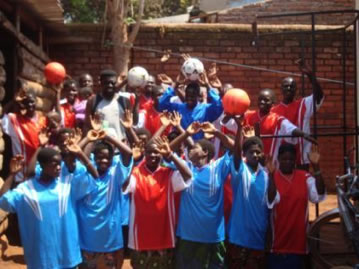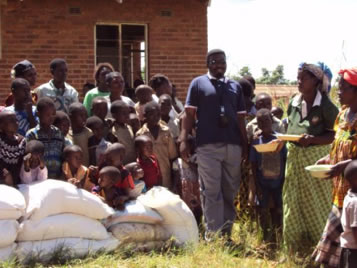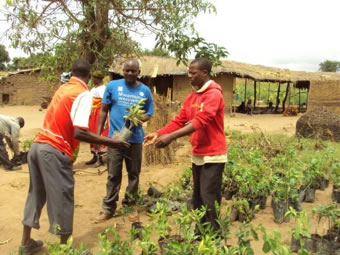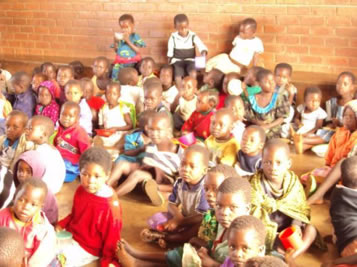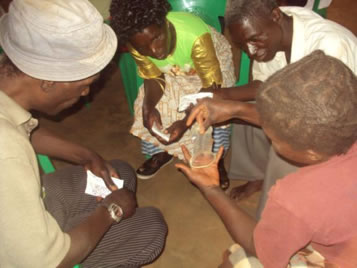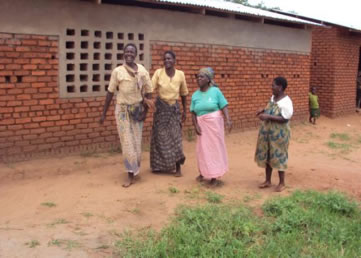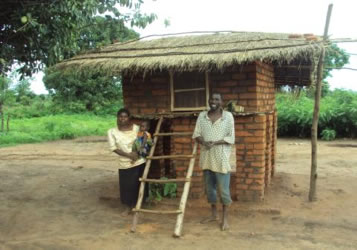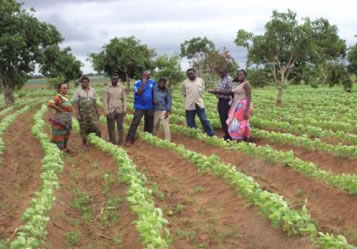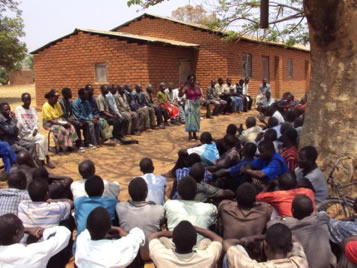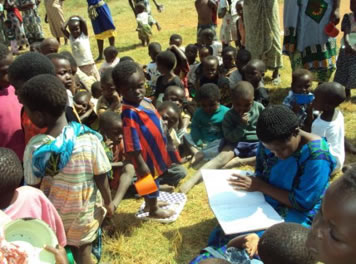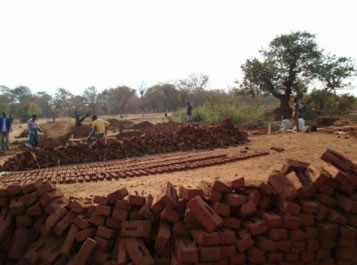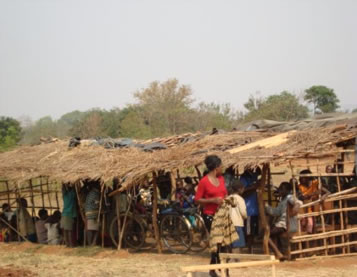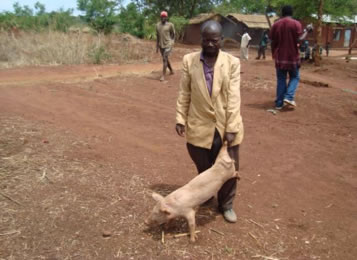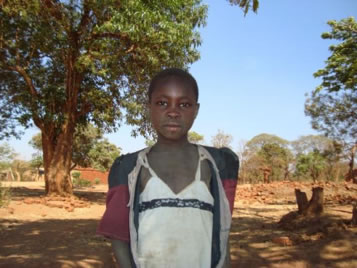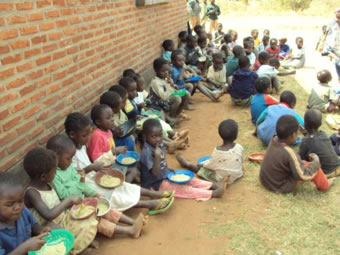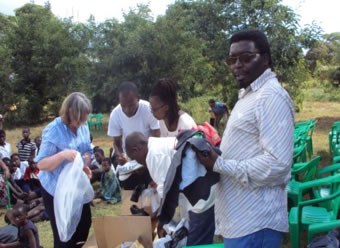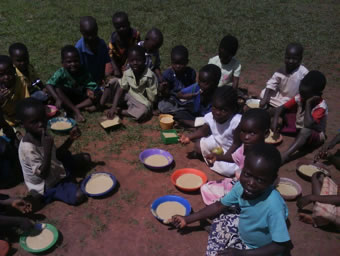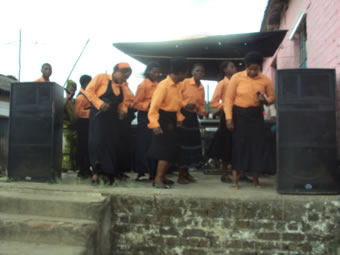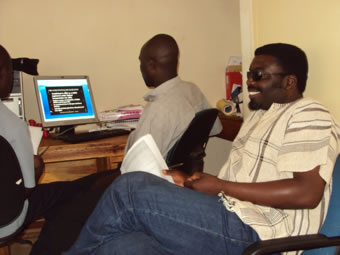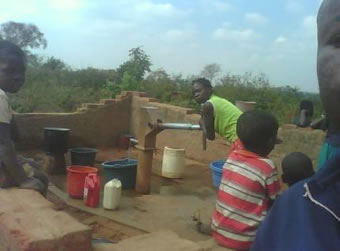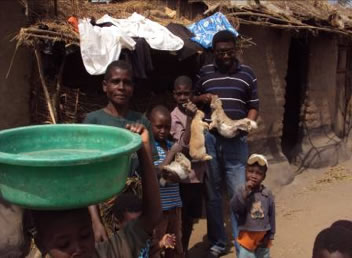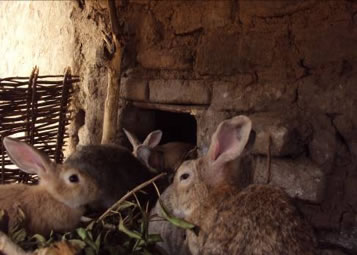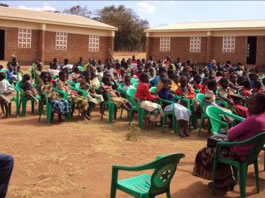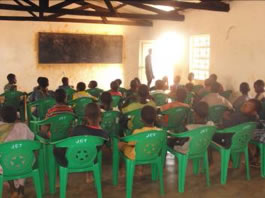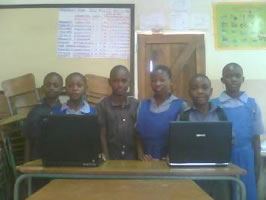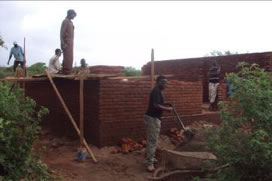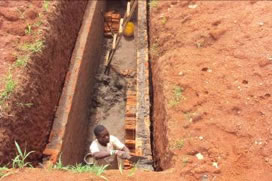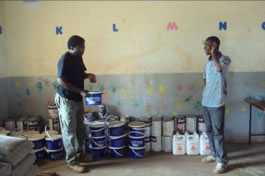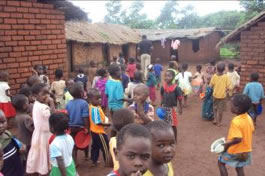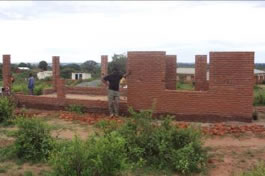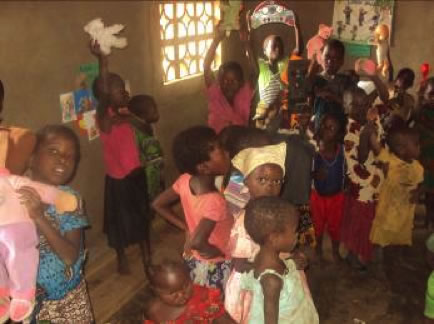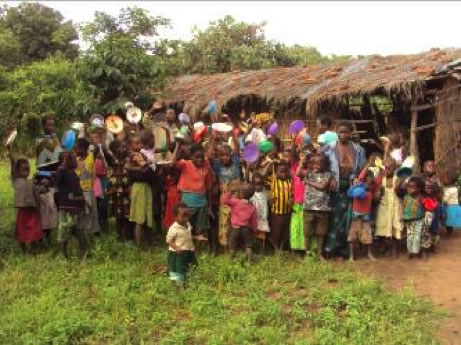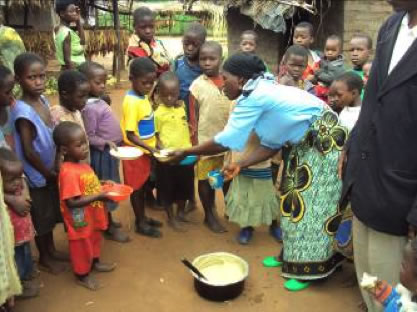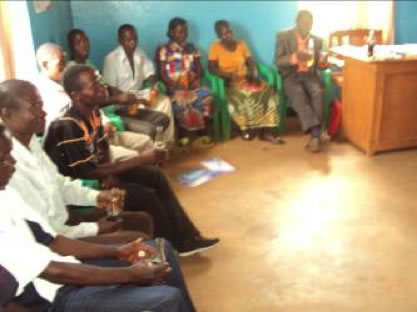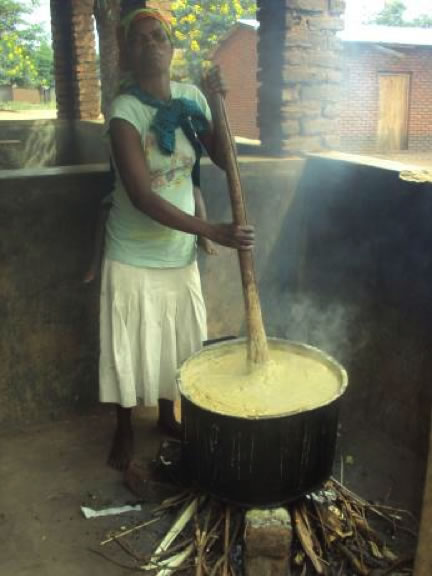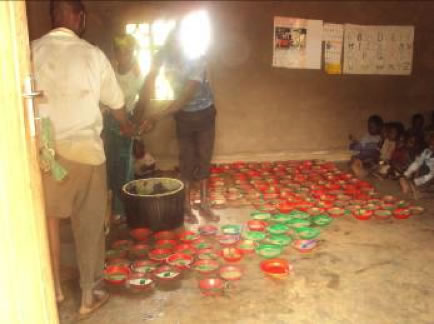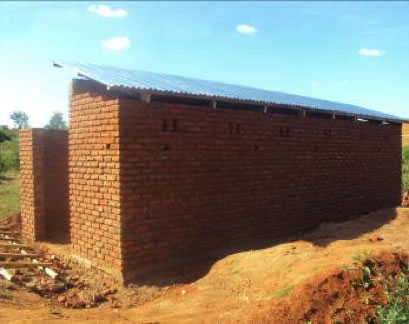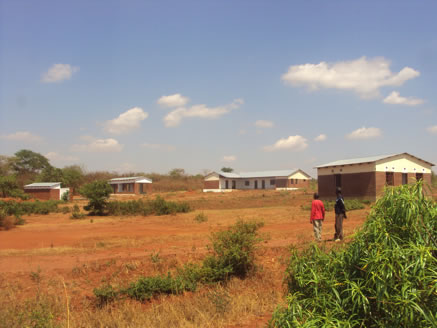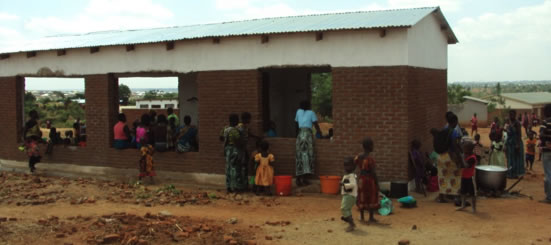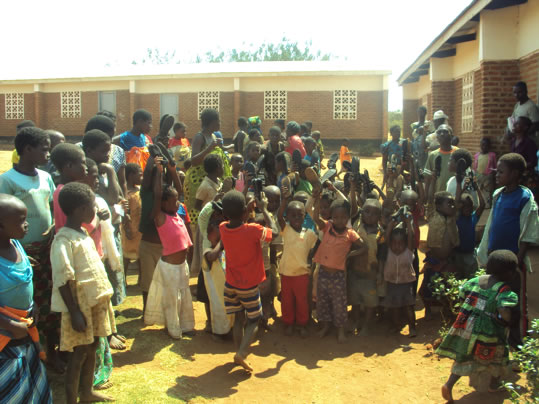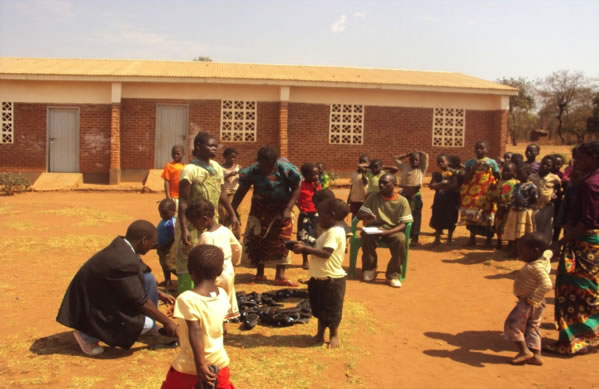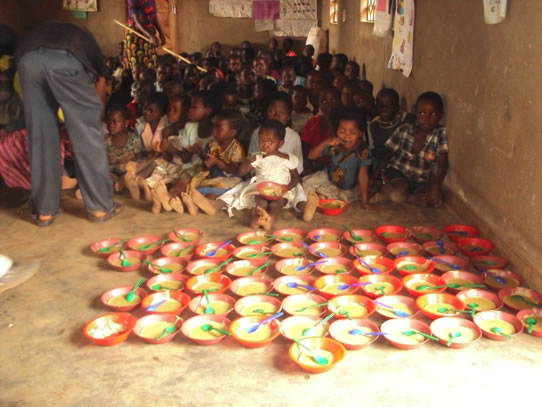2000 – 2008
November 2008
Began the first stages of conducting a JCT mobile HIV/AIDS counselling and testing clinic with Partners In Hope a private hospital at Mutu village, Lilongwe. Those who were positive were referred to hospital for management.
September 2008
Started the first JCT football team with one kit and two balls donated from a lady at the American Embassy. Our friends and representatives from the St Andreas Evangelical Assembly of God, Sao Paulo, Brazil, donated funds and with the money we drilled 3 bore holes. Other monies went towards school build in Mutu Village, Lilongwe.
August 2008
Michael and Austin attended the first course on behavioural change among youth groups in Lilongwe, for the prevention of HIV/AIDS.
July 2008
Distributed piglets to a number of families for income generation in Mutu Village, Lilongwe and Chitipa, Isharikira village. They were also given as a gesture of the support offered to workers who were helping the building of both schools.
June 2008
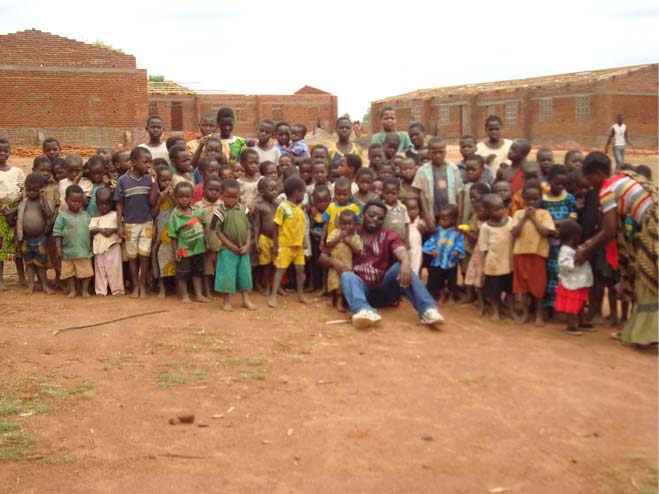
Michael and some children with the school nearly complete in Mutu Village, Lilongwe.
April 2008
School build started in Chitipa, Isharikira village.
November – December 2007
Identified land and held discussions with local community in Chitipa to start second school build. Started making bricks for the build once agreed.
June – August 2007
Received funding from Action Aid amounting to 380,000MK. This was used to set up village loan schemes for People Living with HIV/Aids. Sensitization meetings took place with the local village leaders on behaviour change for HIV/AIDS prevention. The JCT also facilitated the establishment of small-scale irrigation for four areas we are working in, to open a vegetable garden for income generation. Purchased seeds for the widows, distributed pigs for orphans and vulnerable children.
April 2007
School build started in Mutu Village, Lilongwe.
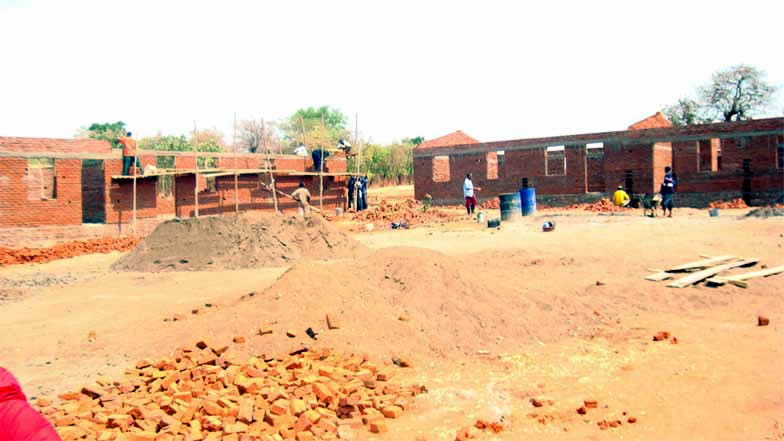
January – March 2007: Nsanje Floods, Southern Malawi
The flood started on 20th January 2007 and ended on 3rd March 2007, a duration of 43 days.
The flooding affected over 22,000 households, more than 20 villages were washed away resulting in the destruction of livestock, crops and over 1,000 homes – some of them belonging to teachers. The downpours also meant that at least 10 primary schools in Nsanje, Lilongwe and Chitipa Districts were closed or destroyed, affecting thousands of pupils. Three major rivers in the district flooded.
Supplies for families affected by the flooding
As a result of the floods the JCT dispatched emergency supplies to the flood-affected areas, so that families could resume a semblance of their former lives. Tents for shelter, emergency survival kits, hurricane lamps, plastic buckets, chlorine, soap, jerry cans to carry water, and pots and pans, among other supplies.
November – December 2006
Identified land and held discussions with local community in Lilongwe to start first school build. Started making bricks for the build once agreed
October 2006
Procured fertilizer for the seeds, which were utilised in the first rains of January 2007.
September 2006
Procured maize seeds which we distributed to orphans and vulnerable households. Procured Soya Beans which were planted in community garden to help feed the children in our Community Based Child Care Centres. Procured watering cans in order to help the community in watering vegetables which will be distributed to the children in our Centres. Procured Likuni Phala (highly nutritious porridge) which we cook in our Community Based Children’s Care Centres every morning. Procured 3 cartons of toys for the Community Based Children’s Care Centres.
June 2006
Held the JCT fundraising Quiz / Raffle for local businesses in the Gloucestershire area at the UGSU (University of Gloucestershire Students’ Union). We managed to raise £2136.
April 2006
Emlyn and Calvin Willman (Website Developer) constructed the website for the JCTUK.
March 2006
Became a registered member of CONGOMA (Council for Non-Governmental Organisation of Malawi).
February 2006
Received bales of second hand clothes, sugar and soap from Youth for the Mission from South Africa. This was for the Chitipa Centre.
January 2006
Received funding from World Vision Malawi and JCTUK amounting to MK 314, 000 (£1324.41) for Nsanje centre. With this funding JCT conducted training for local leaders on HIV/AIDS Awareness, Child Abuse and the care of orphans. We bought agricultural supplies, namely 200 packets of maize seeds, 200 packets of vegetable seeds and 30 water canes for the community garden.
December 2005
Received a donation of clothes and shoes from the Evangelical Assemblies of God, USA through its Malawi based branch.
November 2005
Received funding from Action Aid Malawi for the Lilongwe Centre amounting to MK 742, 190 (£3130.46). The money was put to good use in raising HIV/AIDS awareness amongst local leaders. It also helped to buy agricultural supplies. We bought 160 packets of maize seed and 110 bags of fertilizer. These were distributed to the children to help increase crop yield. The crops are doing very well and they are expecting an increase in their harvest this year. Martha and Michael went on a training course in monitoring and evaluation organized by Action Aid Malawi.
October 2005
Michael and Austin attended a training course in management of people living with HIV/AIDS.
Training course in monitoring and evaluation organized by Action Aid Malawi
August 2005
The JCT registered with NOVOC.
January 2005
Opened two more centres: The first in Lilongwe, Central Malawi, which has 250 registered orphans and runs a nursery school. Another centre was opened in Chitipa, Northern Malawi with 700 registered children. Pastor Silesi Mtambo is the centre manager in Chitipa and Martha Mkandawire is the centre manager in Lilongwe.
May 2004
Received land from Chief Tengani for the community to grow maize and vegetables.
January 2003
Established an orphan centre in Nsanje District at Chief Tengani’s area, in the Southern Part of Malawi and near the border between Malawi and Mozambique. The centre catered for 1000 registered orphans and vulnerable children under centre manager Austin Chirwa.
Since 2003, the centre has been run using funds from JCT and other well wishers including Shefani and Niparm from India and Joanne Jorissen from the United States of America. These funds have assisted the JCT to buy agricultural inputs. Today the orphans of Tengani have a maize and vegetable garden which helps them to earn money and grow maize. Five treadle pumps have been bought with the same money and the families are able to have maize throughout the year. The money has also been used to buy cartons of soap, sugar and salt which have been distributed amongst children.
June 2001
The John C Thomas (JCT) Children’s Foundation is registered with the Government of Malawi under the trustees incorporation act and is currently working with the Ministry of Gender and Children’s Social Welfare.
The first children’s centre is opened in Nsanje, Chief Tengani’s village. 1000 children were registered with Austin Chirwa as the centre Manager.
September 2000
After visiting Michael’s village for three days, Emlyn and Pastor Michael Thomas formed the John C Thomas Children’s Foundation, with the aim of providing continuous support and care for the orphaned children of Malawi.
During his visit Emlyn quickly realised the harsh realities of HIV/AIDS and other devastating diseases such as malnutrition, malaria, cholera and typhoid. The effects of these debilitating conditions on local communities was permanently etched on Emlyn’s mind.
August 2000

Emlyn John and Pastor Michael Thomas meet on the border of Malawi and Tanzania, during a six hour journey in the back of a Daihatsu van.



